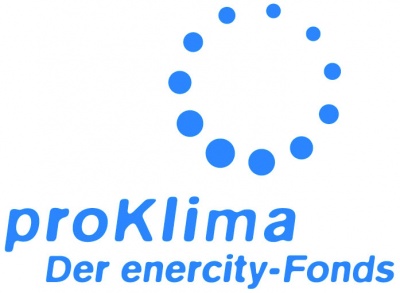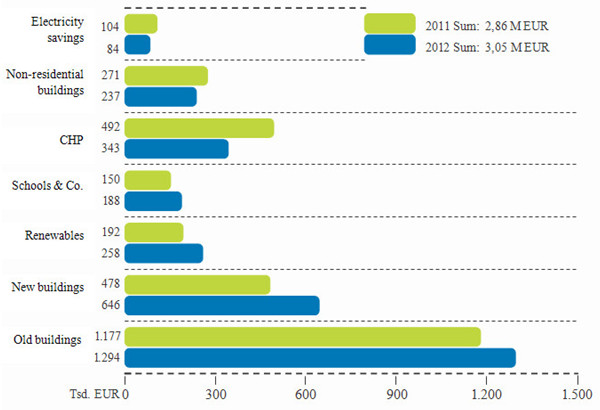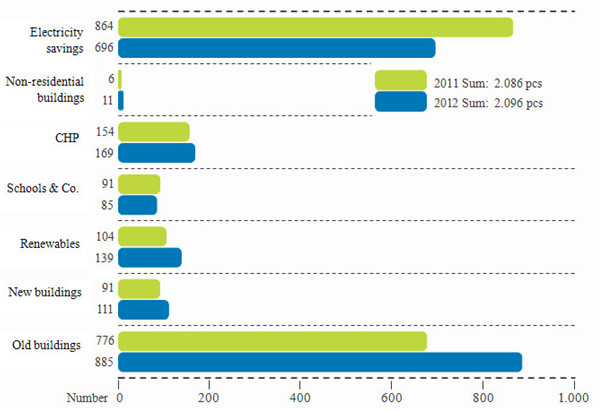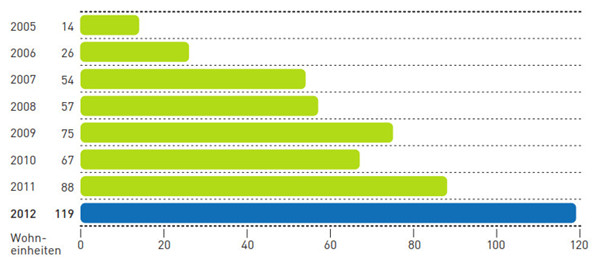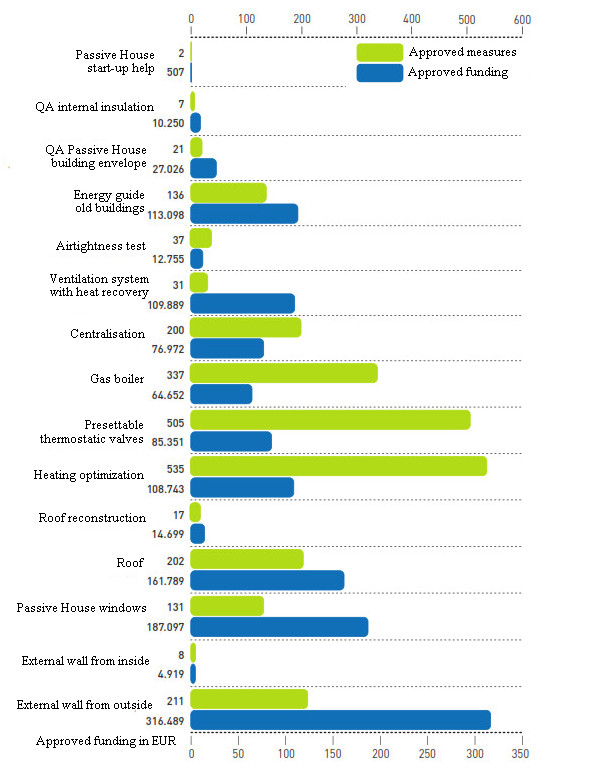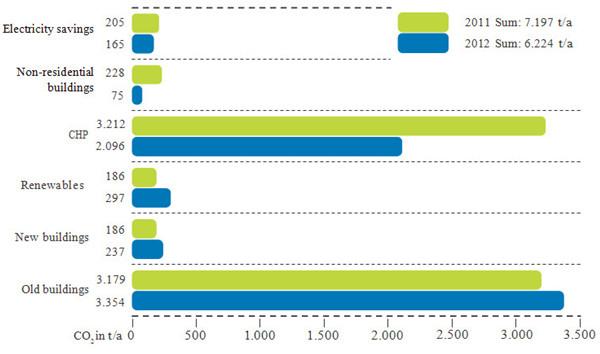ProKlima Climate Protection Fund
General
The Climate Protection Fund "proKlima" operates on the basis of public-private partnership, in which the municipality and the local energy supplier Stadtwerke Hannover AG play a key role together with 5 neighbouring municipalities. The proKlima Fund provides Euro 4,4 million annually, thus supporting the energy conscious renovation of buildings, the introduction of the Passive House Standard, as well as the introduction of energy efficient technologies and renewable energy. Conditions for obtaining a subsidy from ProKlima include: (a) the certification procedure for the Passive Houses construction method and (b) energy efficiency quality assurance for structural insulation, heating and ventilation.
Collaboration
The Сlimate Protection Fund “proKlima”, set up in 1998, is the outcome of the perfect collaboration and interaction between the Hanover Municipality and the regional utility company Stadtwerke Hannover AG. It combines management interests, consumer needs and local activities in the City of Hanover. This unique policy instrument plays a key role in the practical implementation of a series of projects by providing financial support for the design and construction of low-energy buildings and for overcoming certain inevitable market barriers.
In the period 1998-2003 the proKlima Fund supported 9,000 projects and initiatives. As of 2013 some 24,000 climate protection measures were subsidised and over 53 M Euros allocated. Every Euro of financial support, allocated by proKlima, helps to mobilise 12.7 Euro in investments, which is the most convincing evidence of the high effectiveness of this instrument.
"ProKlima" supports local climate protection measures, that are in need of financial support in order to be implemented. Additionally, it aims to reduce those costs of implementing innovative projects that will not be recouped at this point by the energy savings. The allocation of this funding is based on clear and well established criteria: CO2-efficiency, absolute CO2 reduction, potential scope of application of the intervention and the degree of innovation. With know-how and subsidies "proKlima" furthers energy saving in heating and energy generation from renewable sources. There are several public support programmes:
- Old buildings: Consultancy, quality assurance, training and subsidies for energy modernization. (Energy efficiency in existent buildings – renovation with the proper amount of insulation, mechanical ventilation with heat recovery, triple-glazed windows, the use of cogeneration, etc.) Approved subsidies in 2013: 1.2 M Euro.
- New buildings: Consultancy, training and construction of Passive House residential buildings. (Energy conservation in new residential buildings – passive houses, low-energy houses, nZEB, etc.) Approved subsidies in 2013: 845,000 Euro.
- Non-residential buildings: Passive House construction, complete renovation with Passive House components, as well as energy consumption data analysis. Approved subsidies in 2013: 258,000 Euro.
- Renewables: Consultancy and quality assurance for wood heaters and solar heating systems. Approved subsidies in 2013: 181,000 Euro.
- Cogeneration (CPH): Consultancy and quality assurance for district heating and the simultaneous generation of heat and electric power in so called block cogeneration plants (BHKW). Electricity savings: On-site consultancy on the subject of household electricity usage. Approved subsidies in 2013: 419,000 Euro.
- Schools & Co.: Models, events, services, solar systems for schools, organizations, churches and public institutions; (activities to popularize solar energy and climate protection including solar panels as educational materials.) Approved subsidies in 2013: 252,000 Euro.
- Electricity savings: On-site consulting on the subject of household electricity use. Approved subsidies in 2013: 106,000 Euro.
- Associations: Energy improvements in the buildings of associations, foundations and societies (till 2007).
- PV: Solar power generation systems (till March 2000).
Actual results and achievements are monitored and evaluated. Progress reports are published every year. The report on 2013 shows that there was a budgetary need of €3.23 M, based on the applications that were up to standard. Actually individual projects that are especially eco-friendly were supported with approx. 657,000 EUR. The need for financing new buildings was met with 845,000 Euro. The planned budget of 450,000 Euros for 2013 was expected to be exceeded by 88%. The great demand is due to high construction activity and adoption of the passive house approach for a large number of new neighbourhoods (e.g. zero-e park). Apparently, designers have accepted the urban energy challenges and are aiming for the Passive House standard.
Here are few examples from the Annual report on 2012:
Another inspiring development is the initiative (together with the Climate control centre for the City of Hanover) to install PV-systems on big roofs of commercial buildings. This brings within reach the goal, announced by the Climate control centre for the City of Hanover: by the year 2020 in the city of Hanover a total surface area of solar systems of 1,000,000 m2.
More information
Climate Protection Fund proKlima
The partnership contract “proKlima” as a model for cooperative climate protection
Sources:
Case study: The “proKlima” partnership contract as a model for cooperative climate protection on community level (Case study proKlima.pdf)
Bericht der Geschäftsstelle Februar 2013 bis Oktober 2013
